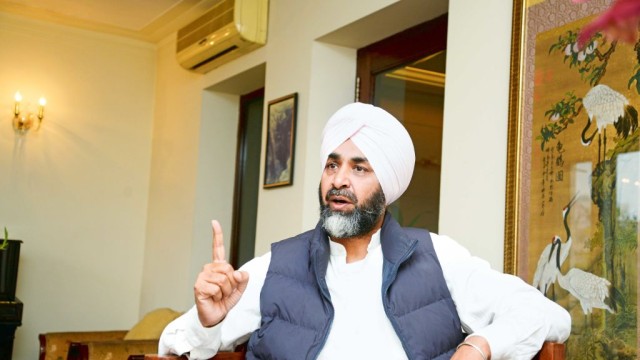Chandigarh, Punjab Finance Minister Manpreet Singh Badal has been urged to increase in cess on tobacco products in state which not only helps in generating more revenues to treasurer but also ensure control in smoking culture in the society. Consumer Voice, a New Delhi based NGO has urged for imposing cess on all tobacco products to raise revenue for disaster relief is a win-win as it will save lives by reducing consumption across India and save lives affected by the natural calamity. Global experience around the world has shown that even while such a tax increase will decrease use, government revenue will increase.
“Imposing additional cess on all tobacco products, including bidis, will be a huge win for public health and revenue generation. This move will provide much needed relief to the people of Kerala while motivating millions of tobacco users to quit and preventing youngsters from initiating tobacco use.” says Ashim Sanyal, COO, Consumer Voice.
WHO recommends that countries impose tobacco excise taxes that amount to at least 75% or more of retail price to achieve the dual objective of reducing tobacco use and increasing government revenue.
Tax burden on bidis post-GST is only 22% compared to 53% for cigarettes and about 60% for smokeless tobacco. All of these are well below the WHO recommended rate of 75%.
It is critical that the 28% GST rate category be retained for demerit/sin goods such as tobacco. This serves two purposes, as it firstly sends out a strong public health message discouraging the consumption of sin goods. Secondly, having a separate sin tax category decreases the pressure on the other three rate bands which are applicable to essential commodities allowing the government to have a relatively lower standard GST rates for those items while still maintaining a revenue neutral position. Since tobacco products are relatively less price elastic, a high GST rate on them would not lead to loss of revenue but instead increase the revenue.
Bidis contribute to the majority of the 10 lakh deaths in India every year as well as the staggering economic burden caused by tobacco use and tobacco related diseases.
The total economic costs attributable to bidi smoking from all diseases and deaths in the year 2017 for persons aged 30-69 years amounted to INR 805.5 billion (USD 12.4 billion) while the excise tax revenue from bidi was only INR 4.2 billion in 2017 which is only 0.5% of this costs.
In the appeals to GOM members, consumer groups/public health groups have stated that it is critical from a public health and tax administration perspective to have all tobacco products taxed at the same levels across India. This will also prevent any undue advantages gained from inter-state smuggling of tobacco products based on differential pricing amongst states. In order to maximize the benefits of the new GST regime for public health and disaster relief, it is critical that tobacco cess increases be imposed pan-India.




 Driving Naari Programme launched in Chandigarh
Driving Naari Programme launched in Chandigarh































